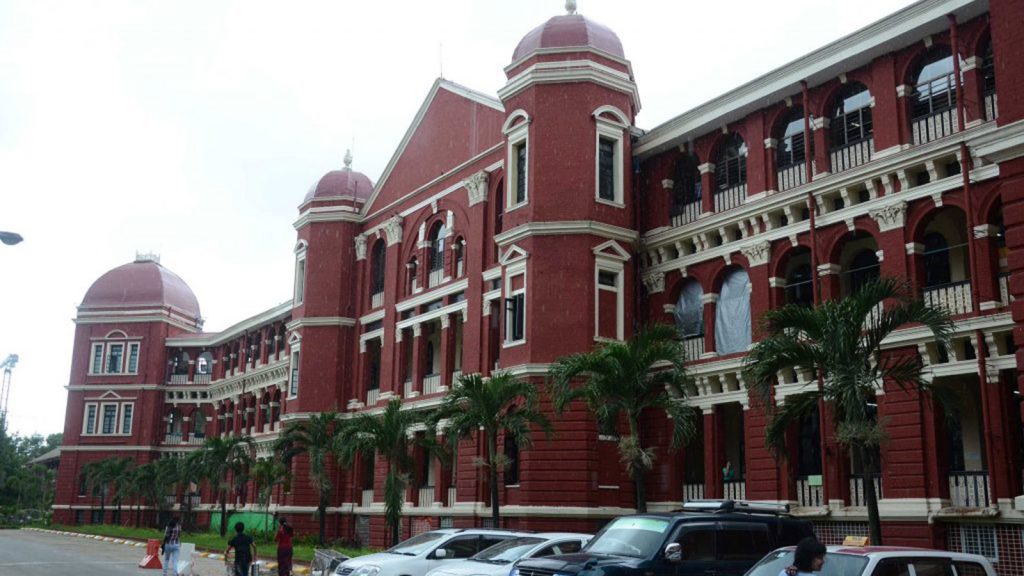11 March
Medical social work is a social service for those who are hospitalized in state-owned hospitals and who are facing socio-medical difficulties that are required to be solved with the help of medical social workers. The service is a small unit known as the Medical Aid Unit under the Department of Medical Services, Ministry of Health and Sports.
Intentions of helping in-patients
The main objective of this service is to help in-patients concerning their medical and social problems. Medico social problems mean that difficulties result simultaneously from illness. By solving these problems, medical services are expected to be highly successfully.
Thus, laborious works of professionals, public funds, medicines and medical equipment will not go to waste. For the patients themselves, physical and mental health can not only be retained but also gained social satisfaction during a period of their hospitalization.
The history of medical social work began in children’s hospital in San Francisco, USA in 1886; it all originated when a health worker was employed for the treatment of infants with inborn defects. Then in 1894, a medical social officer was employed in post-graduate hospital in New York, USA.
Little knowledge on medical social service in Myanmar
Medical social activities have extended not only in developed countries but also in developing countries in the later period of time.
In Myanmar, medical social service started in Yangon General Hospital in 1957. At that time, it was known as “Public Relation Department”.
Nowadays, medical social staff have been employed to carry out their respective duties in Central Hospitals , Specialist and General Hospitals and 100-bed hospitals in the Regions, States and Districts.
Medical social service In Myanmar has existed for more than 60 years; but it is little known among the public. Even health workers sometimes don’t know about the medical social activities. That might be because there are a few workers of medical social service and a little budget allowance for poor patients due to a set-up; it is also possible that few trainings are conducted for the skills of medical social staff. Now, the government has employed more and more medical social staff in the Region and State Hospitals. At the same time, a budget allowance for poor patients has been allocated in accordance with sizes of the hospitals.
Travelling allowance for health workers
Some patients are basically short of money so that they need help from the medical and social health workers. Some patients, who are released from the hospitals, have no expenses to go back their homes and need help from the medical social workers. Throughout a period of hospitalization, patients find it difficult to buy medicines, clothes, foods and other things (for example, a pair of crutches and wheelchairs) These poor patients could be helped by the government via budget allowance and money provided by individual donors to be worked out by medical staff in line with the health procedures.
Some patients might inadvertently create consequences in their family circle and a household by having infectious HIV/TB. In that situation, medical social staff should share knowledge, encourage and comfort about these infectious diseases to patients, their families and other relatives. If necessary, these patients should be sent to hospitals and other medical centers for further treatments.
Helping abandoned infants and the elderly
Sometimes newly-born infants are abandoned for several reasons; they must be temporarily looked after by medical staff and transferred to adopted parents or to a suitable government center. The elderly and helpless patients can be resettled in the home for the aged poor in consultation with social organizations. Some patients are unwilling to go after release order and some even refuse to go away from the hospital. Medical social staff will discuss with them for a clear and insightful knowledge of releasing from the hospitals. Knowledgeable discussions should be organized to let them know the true situations of our life: those who intend to commit suicide, illegal abortions and abandoned newly-born infants are included in those categories. Some women and children are hospitalized after they are terrorized.
They should be helped with effective actions by the medical staff in consultation with organizations concerned by means of instructions, comfort and provisions of financial assistance. In time of natural disasters and a state of emergency, patients arrived in hospitals enmasse; their personal history and summary of events should be collected by the medical staff as much as they can. If necessary, blood donors must sought and collection of corneas must be encouraged from the dead and blood donations should be arranged by medicosocial staff.
Some patients should be reminded of their examinations during hospitalization; examinations should be arranged for primary, middle and high school students as well as for university, college and institute students.
Medical treatments and solutions of their problems
When the new government was in power in 2016, Medical Social Relations Unit was put in two work projects under the work plan of first 100-day government. The first thing to employ many receptionists in state-owned hospitals; their duties are to show out-door patients and send them to their respective beds if necessary.
The second one is that those released from hospitals should be enquired about conveniences or inconvenience during their stay in the hospitals. The reason is how these problems should be solved in accordance with the prescribed framework.
Due to the extension of medical social activities, medical treatments accompanied by patients’ general problems could be solved. Furthermore, the physical, mental and social wellbeing of patients and their families is sure to be fulfilled.
By Pe Hnin Ngwe
Translated by Arakan Sein


